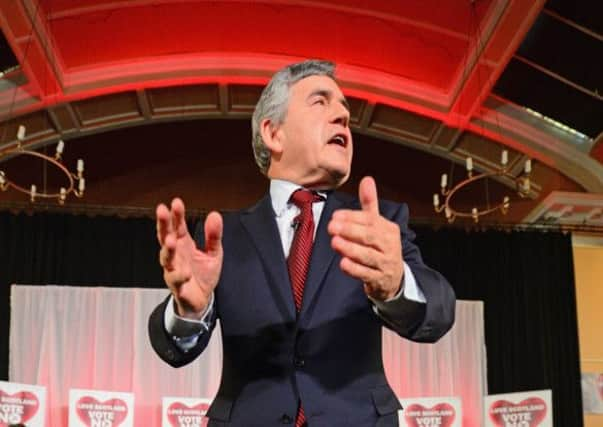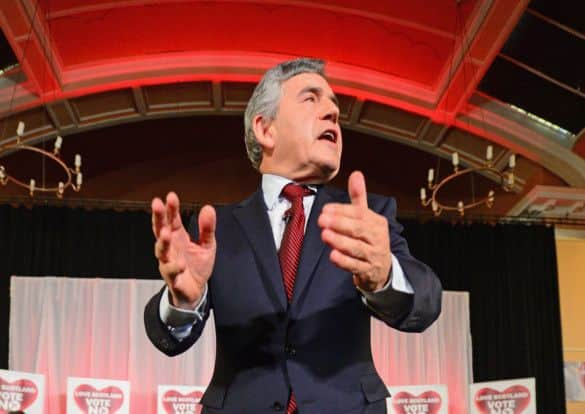Joyce McMillan: Is No vote fear over common sense?


A DISMAL grey dawn breaks over Edinburgh; and once again, we find ourselves in a position that seems strangely familiar, shot firmly in the foot with our own hands, and back on our knees, the position in which we seem to feel most comfortable.
Advertisement
Hide AdAdvertisement
Hide AdIf humankind is still around in a century or two, historians will reflect in amazement on the fact that in the early years of the 21st century, a country almost uniquely rich in all the resources that were to matter as that century unfolded was offered the chance – through a simple, peaceful ballot – to take all those resources into its own hands, and to use them for the benefit of its people, and of the wider world; but chose instead to leave them in the keeping of a largely discredited Westminster government, which had already squandered most of the oil wealth found off its shores 50 years earlier.


In the dying days of Scotland’s referendum campaign, the No camp made much of the idea that a Yes vote represented an act of emotional romanticism, whereas No was the sensible option; but in fact, it is at least as easy to read Thursday’s result as a triumph of fear, and of residual unionist sentiment, over elementary common sense. It was certainly, if Lord Ashcroft’s polling figures are to be believed, a victory of the old over the young; essentially, the union was only saved, on Thursday, by the overwhelming No vote of pensioners who can remember the UK in better times. And the vote also represented a victory of the comfortable over the dispossessed, of traditional top-down politics over a new grassroots politics, and of the relatively silent and disengaged over the engaged, the active and the passionate; no-one who cares about the future of democracy could possibly take much pleasure in the triumph of a Better Together campaign so relentlessly negative, dull and reactionary, and so bereft of any progressive vision for the future of the UK.
In the last days of the campaign, of course, under pressure from opinion polls, a few roughly-sketched plans for a new federal Britain did begin to appear; although my own view is that Scottish civil society would be well advised to take a long, hard look, before welcoming top-down plans thrown together by David Cameron and Gordon Brown at such insultingly short notice, many of which seem more likely to entrench existing patterns of power in Britain, rather than challenge them.
For in the end, one of the mistakes made by the Westminster establishment is to assume that the Scottish Question can always be answered by constitutional reform. Scotland’s referendum was about independence, yes; but the force that drove most of those 1.6 million Scots into the Yes camp was not Scottish nationalism, but a demand for the restoration of social justice to the heart of the political agenda, and for a real challenge to the nexus of corporate and political power that increasingly dictates the limits of democratic debate across the West. What the 45 per cent will now be demanding from Westminster is not some minor adjustment in Holyrood’s powers, in other words, but a radical reform of the Westminster system itself. And in that demand, they will be joined by millions more across the UK, who also want their democracy back, and may now be inspired to put up a bolder, more brilliant, and more inventive fight for it.